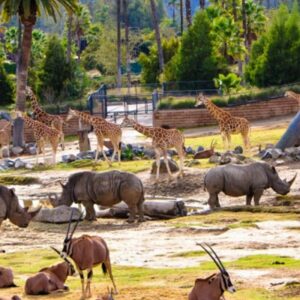This is Faith in Play #77: Animals, for April 2024.
We’ve talked about animals before. Faith and Gaming: Animals discussed their perceptions of reality in the context of whether they were praising God outside our knowledge, and last year RPG-ology #65: Dog (a recovered Game Ideas Unlimited article) discussed how animals think, as a pointer to how aliens might think. But this month my attention has been pointed toward the relationships between humans and animals.

My wife watches quite a few wildlife and nature shows, and since the TV is in the bedroom they become part of my television diet as well. Some I will select when I want something in the background, such as going to sleep, but I often learn from them, and as you probably know I consider learning valuable. One recurring feature of these is that the caretakers of wildlife centers are often attempting to nurse animals back to health, usually with the goal of returning them to the wild. In most of these facilities the effort is made to keep human contact to a minimum so that the animals won’t become inured to people. Yet there is one show she recently found in which this policy is very different: the keepers make an effort to establish mutual caring relationships between themselves and the animals, and that is what has intrigued me.
It is said that animals are in the main naturally afraid of humans–and in some sense they should be. After all, for centuries men have hunted animals, for food, furs, ivory, fats, and other commodities, or simply to prevent them from devouring our own crops, flocks, or children. We want lions and tigers and bears to be afraid of us, because it means we don’t have to be as afraid of them. Even small animals such as raccoons and foxes are considerably less bothersome as pests if they flee our presence. Having wild animals fear us is better for us, but also for them.
Yet in this one preserve the keepers have a different attitude. They are overseeing the health of these animals, and have to give them veterinary examinations which often include such difficult tasks as getting them to stay still for an X-ray or tolerate an injection. They want the animals to trust them, to feel comfortable around them, effectively to believe that the humans aren’t going to hurt them unless it’s necessary to help them.
The surprising thing is that this appears to work–with giraffes, rhinos, lions, manatees, large fish, ostriches, and an incredible variety of creatures who would otherwise pose a threat of one sort or another to people.
Yet on some level I feel as if I shouldn’t be surprised.
My understanding of the creation account in Genisis–however literally or figuratively you wish to take it–tells me that God gave man responsibility to care for the animals, and inherently in that that the animals would respond to that care. Animals by nature should trust humans. It might be that we have taught them to do otherwise.
I don’t know how this might play out in the real world–but I do think that it could well play out in games. We obviously have relationships between characters and specific animals–the paladin and his mount, the hunter and his dog, the druid and his owl. This could be expanded–one of our Multiverser characters has a natural affinity for animals, such that he easily and readily makes friends with nearly any animal he meets, domestic or wild. The potential for such relationships between people and animals is, I think, underexplored. We could do much more with it.
Can people really be friends with tigers, rhinos, hippos, sharks, whales? They manage it at that one sanctuary. It could be expanded to the world–at least, in our fantasy worlds.
